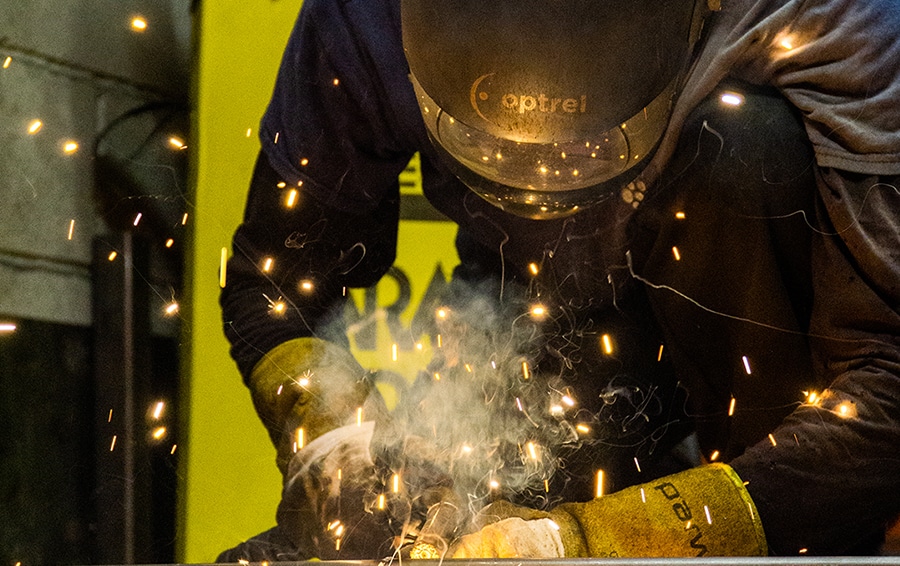Small-scale manufacturers across the UK saw sales revenue plummet mid-way through this year as supply chain disruption, potential tax hikes and lower business confidence began to bite.
Firms went into Quarter 3 on a stronger footing than last year, with average revenue up from just over £181,000 to more than £233,000, according to a new report.
However, by the end of September, they were only generating £147,500, compared to £183,600 in 2020.
Unleashed Software, whose supply chain management platform supports more than 4,000 businesses globally, compiled the figures from a sample of 385 UK manufacturers.
Analysts at the tech company, which is now part of The Access Group, collected 79,000 data points generated from firms’ day-to-day operations, including sales orders, EU exports and e-commerce activity.
They found that the proportion of revenue generated from EU exports also plunged to just eight per cent between July and September, down from 27 per cent compared to the same period last year.
In addition, firms that export to the EU were found to be recovering more slowly from the pandemic compared to those who don’t. While total sales revenue for 2021 was up by 24 per cent, EU exporters saw growth of 15 per cent.
Stephen Jones, regional manager at Unleashed Software, said:
“SMEs are the backbone of both the manufacturing industry and UK economy, so a steep drop in revenue is worrying. The initial enthusiasm that followed lockdown restrictions easing in the summer seems to have waned as firms were hit by a perfect storm of supply chain disruption, including driver shortages, talk of tax rises and lower business confidence.
“Compounding matters further is the fact that some manufacturers have opted out of exporting to the EU, most likely because of the additional time and cost burden, so they’ve lost a valuable market.
The firms we work with normally have fewer than 50 members of staff, and they don’t have the resources to manage the new requirements, especially if they’re shipping products in small quantities.
“Reducing exports to Europe may have worked well for companies so far, since profit margins remained steady. However, they’ll need to consider whether their strategy will work long-term, or whether there are more creative ways to serve the EU market.”
Denis Kelleher, CEO of Good Culture Kombucha and an Unleashed customer, added:
“Brexit has really hit us hard due to the complexities of exporting to Europe.
“It’s difficult for us to deal with the additional paperwork, bureaucracy, delays, taxes, charges and tariffs, on top of everything else we do. As a result, we’ve set up a second business in Ireland which will take care of all our European customers.”






